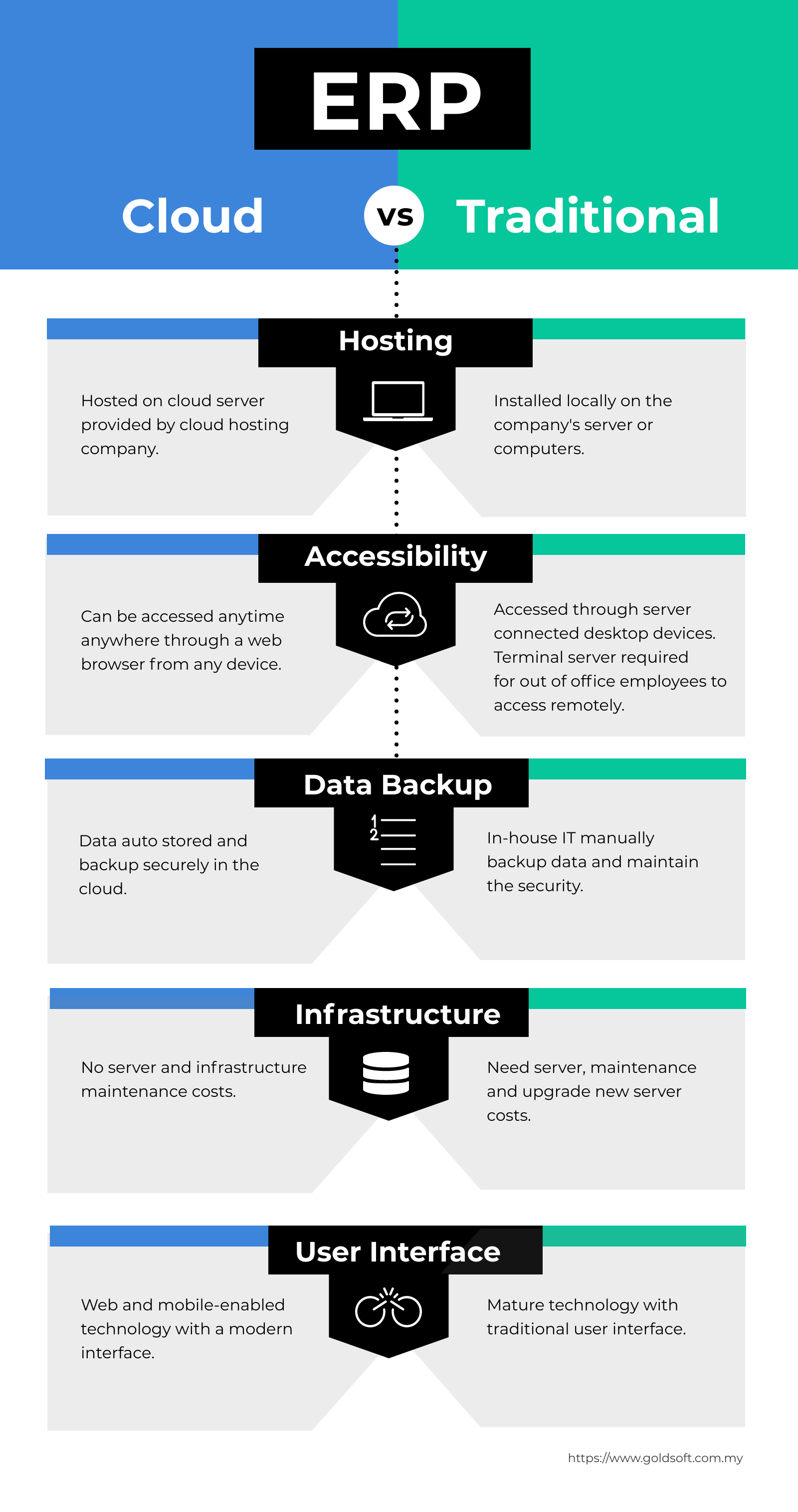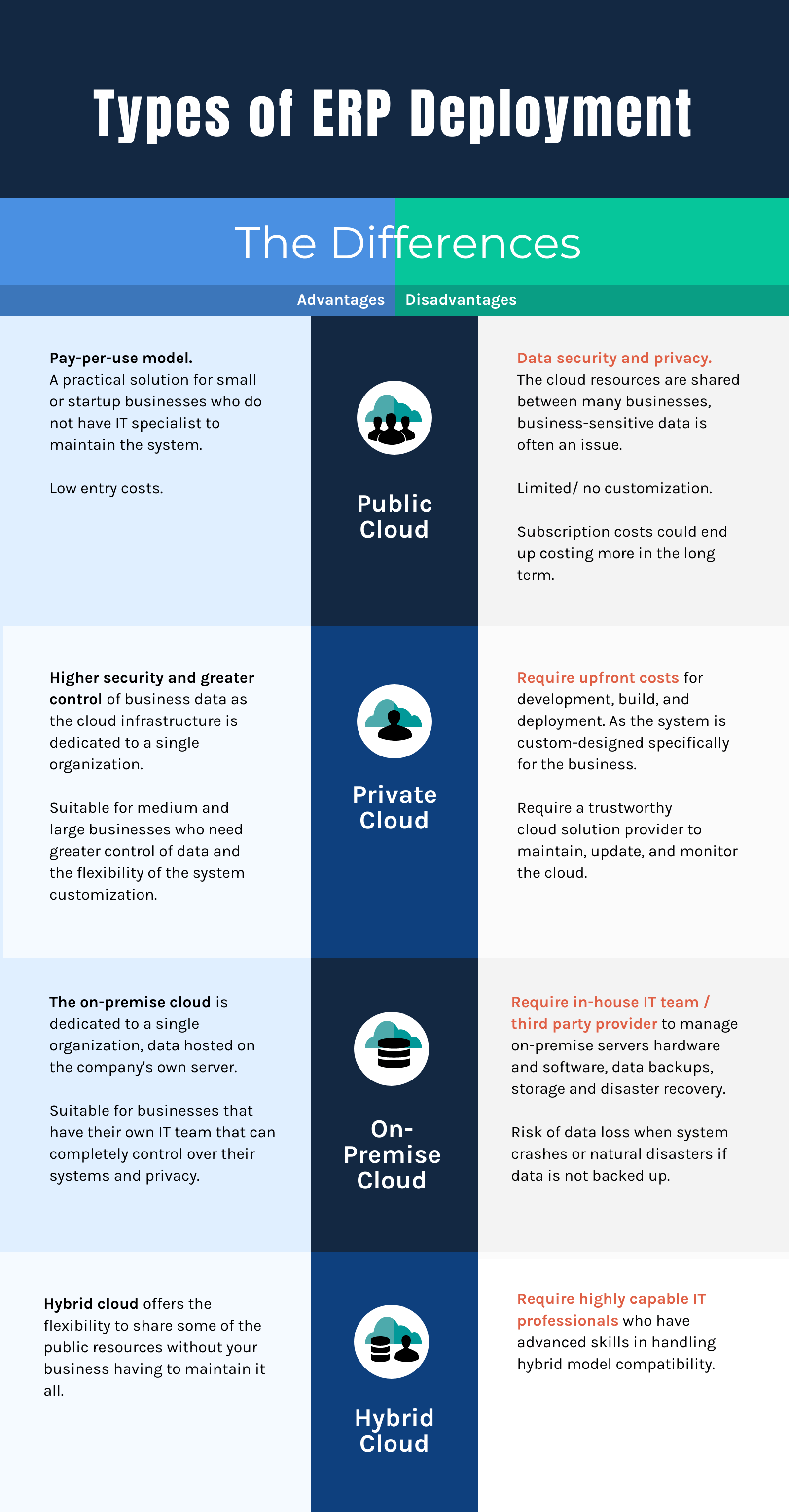Why Cloud ERP
Emerging digital technologies has been revolutionizing the business world today.

What is Cloud ERP?
Cloud ERP is an enterprise resource planning (ERP) system that runs on a professional cloud platform as opposed to an on-premises network, allowing companies and business partners to access information over the internet.
It is important to understand why cloud-based ERP can help the business scale faster.
Video: Why Cloud ERP?
8 Business Benefits of Cloud ERP
- Digital assistance: On-the-go access real-time information by business owners and employees, from anywhere on any device.
- Greater scale. Cloud ERP is designed to handle the ever increasing volume of data and easy to integrate with new technology to provide a single source of truth.
- Automate core processes: Streamline core business operations, manual tasks and reporting. Reduce human errors and empower employees to work on value-added tasks.
- Empower mobile workforce: Mobile accessibility allows remote staffs to execute and input work status in real-time, from issuing sales orders, stock level look up to stock take.
- On-the-go approval: From purchase order approval to stock replenishment and sales order credit limit adjustments, managers or directors can approve/reject on-the-go. Save time and speed up processing time.
- Optimize stock level: Keep up with demand and ensure optimal replenishment through real-time monitoring of inventory.
- Strengthen business partner relationships. Better collaboration and seamless share information by suppliers and dealers across the world with a transparent online portal.
- Improve business insight.
Improve decision making with a single source of truth in an easy-to-understand dashboard view.
Cloud ERP v.s. Traditional ERP
Traditional ERP provides automation efficiencies but lacks flexibility when the company grows into more complex distribution channels.
Take a look at the key differences between Cloud ERP and traditional ERP infrastructures.
Cloud ERP:
- Hosting: Hosted on cloud server provided by cloud hosting company.
- Accessibility: Can be accessed anytime anywhere through a web browser from any device.
- Data Backup: Data auto stored and backed up securely in the cloud.
- Infrastructure: No server or infrastructure maintenance costs.
- User Interface: Web and mobile technology with a modern interface.
Traditional ERP:
- Hosting: Installed locally on the company's server or computers.
- Accessibility: Accessed through server connected desktop devices. Terminal server required for out of office employees to access remotely.
- Data Backup: In-house IT manually backup data and maintain the security.
- Infrastructure: Need server, maintenance and upgrade new server costs.
- User Interface: Mature technology with traditional user interface.
Types of ERP Deployment
Understanding the difference between various types of cloud deployment and identifying which one is the right fit for your business is tremendously important.
Here is a handy comparison chart for Public cloud, Private cloud, On-Premise cloud and Hybrid cloud deployment options:
Which is the right solution for my business?
Every customer has different business needs, IT staff capability and customization requirements that will influence the choice of the deployment strategy.
Goldsoft ERP system- JERP was built on cloud that can be deployed on secure private cloud or on-premise hosted server, offering greater insights, better inventory control and reduced supply chain costs by integrating and automating essential operational functions from multi-channel.
Click here to request a one-to-one consultation now.
Share
Recent Articles








